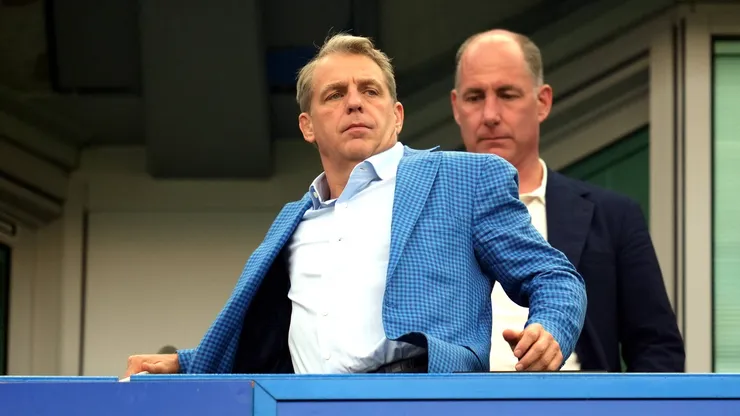
Multi-club ownership (MCO) models are becoming common in professional soccer. In the 2023/24 season, just four of the 20 Premier League clubs had controlling owners from the UK. UEFA also found in 2023 that 180 clubs worldwide were part of an MCO group.
Global investment in soccer has seen a massive shift from single club owners. Now, many clubs are part of investor groups that have a say in different teams from different nations. They have stakes or overall controllership of multiple teams. Some of the biggest MCOs are run by corporations. For example, Red Bull GmbH owns RB Leipzig, RB Salzburg, New York Red Bulls and two other teams.
Despite the growing trend of MCOs in soccer clubs, owners, players, clubs and fans rarely benefit.
MCO player pathways rarely pay off
One of the main characteristics of MCOs is the ability to create pathways for elite and high-potential players. Any club in the group can sign a gem and move them between teams to suit their level. Occasionally, this can lead to a big financial reward and good quality players therefore have a natural progression from playing a better standard of soccer.
For instance, Dayot Upamecano rose through the Red Bull Group and became a global star. The French defender joined RB Salzburg from Valenciennes FC’s youth team at the age of 19. He then joined the Bundesliga team RB Leipzig to play at a higher level. Eventually, he was sold to Bayern Munich in 2021 for over $47 million.
However, very few examples of players playing at the bigger and better-quality clubs exist in an MCO-run system.
An estimated 13,000 players were reportedly contracted to clubs in MCO systems in May 2024. Considering Premier League clubs are only allowed 17 players per matchday squad that can come from outside academies, the chances of tens of thousands of players making it to the top of an MCO group system are incredibly slim.
Impossible to balance one club’s interests
Currently, the City Group owns 13 clubs. CFG spans across five continents. Under the City Group, the network shares resources and knowledge. As a result, some clubs benefit from improved infrastructure and global marketing opportunities, such as Mumbai FC, who were acquired by the City Group in 2019.
Not everyone gets a fair deal, though. Since the Abu Dhabi-owned group took over Man City in 2008, they have spent an estimated $1.73 billion on transfers alone. Such investment has led to eight Premier League titles, three FA Cups and one Champions League.
As the major player in the City Group’s cohort, the Premier League club gets significantly more investment to maintain global interest and keep an ultra-competitive level.
But this rarely filters down to the success of other teams. LaLiga club Girona, for instance, finished third last season but are unlikely to replicate such a feat after selling most of their key players for profit. Manchester City also signed forward Savinho, who has played for Girona and another City Group side, Troyes.
Such turnover of key players would never happen at City. Simply, there is too much at stake for the City Group to risk selling top players from the Premier League club. However, it seems second-string teams in the group are there for profiteering within the infrastructure.
Fan Opposition
It’s difficult for multi-club owners to fully commit their time and resources to one club. Often, this can lead to huge opposition against MCOs from existing fanbases. This is noticeable when owners want to bring a new club into the group.
In 2024, Chelsea owner Todd Boehly acquired majority ownership over French club Strasbourg. The fans protested against the American’s involvement, staging a march before their Ligue 1 match against Rennes in 2024 and unveiling banners during the fixture.
Last season, five of the six clubs under 777 Partners’ MCO model, including Everton, also protested against this group. In a joint statement, fans called for the group to leave their respective clubs in the interest of genuine support. Troyes even hit back against the City Group last season. Fans threw flares on the pitch as the team narrowly avoided relegation from the French Ligue 2.
It’s unsurprising to see supporters passionately opposing MCO group takeovers. These groups make historic teams seem like commodities within the global brand rather than individual clubs with their values and identities. Historically, soccer teams were created to provide social and leisure for the local community, not for business, franchising, and profitability. Yet the MCO increasing MCO models challenge these long-held values.
Moreover, the lack of financial pay-off for investors, with player pathways rarely producing and mass investment needed to create multiple competitive clubs hardly seems worth the commitment.
PHOTOS: IMAGO.
200+ Channels & Local Sports
- Price: Plans starting at $14.99/mo (Latino)
- Watch Ligue 1, Copa Libertadores & World Cup Qualifiers
Every MLS Match in One Place
- Price: $12.99/mo (Now included with standard subscription)
- Watch every MLS regular season game, Playoffs & Leagues Cup
Many Sports & ESPN Originals
- Price: $11.99/mo (or ESPN Unlimited for $29.99/mo)
- Features LaLiga, Bundesliga, FA Cup & NWSL
2,000+ Soccer Games Per Year
- Price: Starting at $8.99/mo
- Features Champions League, Serie A & Europa League
Home of the Premier League
- Price: Starting at $10.99/mo
- 175+ Exclusive EPL matches per season